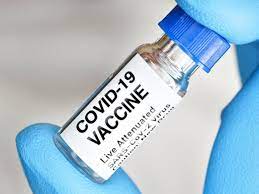They use all kinds of «arguments», they deny scientific research and tend to believe that they have the absolute truth. Throughout these months of pandemic, deniers have spread a number of hoaxes and false information against Covid-19 , its origin, contagion prevention measures and, once the vaccination campaign has begun, also against serums of the coronavirus.
Next, we take apart from the hand of scientific evidence, some of the arguments most used by anti-vaccines:
«Vaccines cause autism»
This is an argument used by a large part of the anti -vaccines, both for Covid-19, as well as for other vaccines, such as the triple-viral . Autism Spain , as well as the Ministry of Health and other societies, have denied this statement, relying on scientific studies that show that autism is just as frequent in vaccinated as not vaccinated and vaccines do not increase the incidence of this disorder.

«Vaccines have graphene oxide»
Nothing is further from reality. This material is not included in any of the leaflets of the four Covid-19 sera approved in our country. This hoax arose from the publication of an alleged provisional report by a professor at the University of Almería on the presence of this material in the vaccine. However, the University itself denied this information: “It is flatly false that the University of Almería has carried out a scientific study with the results that are being published (…). They are misrepresenting the content of an unofficial report by a University professor on an analysis of a sample of unknown origin with a total lack of traceability, ”the statement said.
They add that the center «seamlessly supports vaccines as a scientifically unquestionable instrument to fight diseases.» Furthermore, scientists reveal that it would not even be harmful to health if vaccines contained graphene. In fact, this material is already being studied for its use in different areas of Medicine.
«Vaccines are useless because there are still infections»
The vaccines are safe and effective when it comes to preventing which does not involve serious illness and death from Covid-19, which follow contagions and viruses circulating are avoided. That is why experts recommend mass vaccination of the population and continue to maintain contagion prevention measures. Still, studies suggest that the virus would be transmitted less among vaccinated people.
«Vaccines have very serious adverse health effects»
According to a study carried out, among others, by the nurse of the Burgos University Hospital, Azucena Santillán García, on the discourse of anti-vaccines on social networks, “the possibility of some adverse effect (mostly minor) is never ruled out, because zero risk does not exist, but the benefit / risk balance is very high .
Various scientific investigations have confirmed that it is more likely to develop some of these side effects – such as myocarditis or thrombosis – from a Covid-19 infection, than from the vaccine.
MYTHS ABOUT MASKS
«We have the right to breathe oxygen and the mask does not allow it»
Neither masks restrict oxygen, nor do they make us inhale harmful amounts of CO2. This has been confirmed by the World Health Organization and other scientific societies. A recent study by the University of Connecticut, in the United States, revealed that even doing physical exercise at high temperatures, the mask was harmful to health . The amount of carbon dioxide that is trapped in it is anecdotal compared to the oxygen that enters, so it does not constitute a risk of hypoxia or other pathologies.
«There is no scientific evidence that the mask is effective»
It is true that different organizations have affirmed that only by using the mask contagions are not prevented. However, the mask significantly reduces the risk of infection. In addition, along with other prevention measures such as hand hygiene, ventilation and interpersonal distance, it is one of the most effective ways to prevent coronavirus infections.
DIALOGUE WITH NEGATIONISTS?
The article written by the Hospital de Burgos together with the University of Valladolid, insists that «respect for autonomy does not exempt us from arguing and trying to persuade (as long as there is scientific evidence of the benefit of our recommendation, as in this case) to get healthy attitudes and decisions «. That is, you can try to dialogue, using arguments, with those who are against vaccines, as long as «the attitude of respect and empathy » prevails and avoiding «confrontation, with the aim of seeking agreements, fostering shared responsibility. «.
Fuente: Consalud
 Blog de Fisioterapia Fisioterapia
Blog de Fisioterapia Fisioterapia



